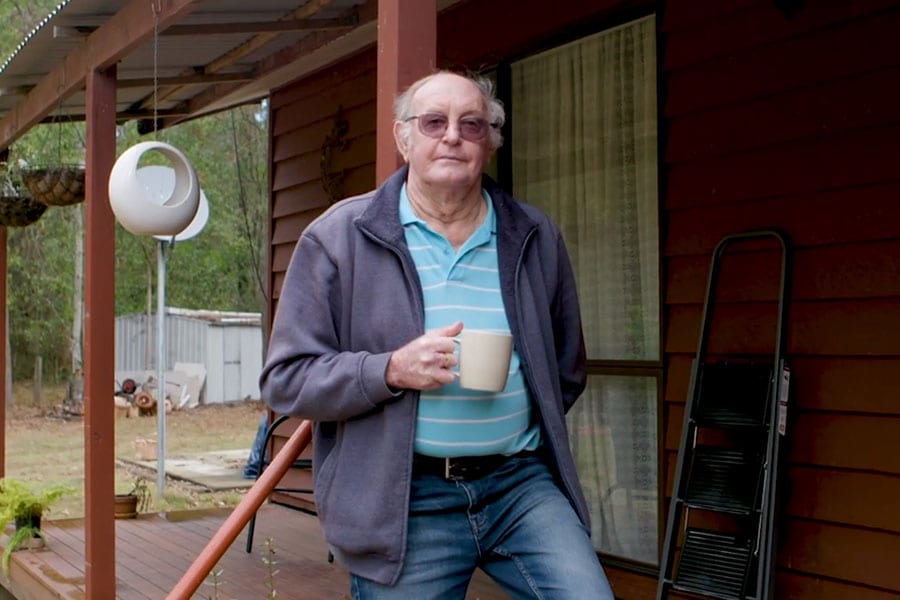70 year old Yorklea resident David Bodsworth has multiple chronic health conditions. He believes that My Health Record has changed the direction of his care numerous times.
My Health Record is an individual’s safe and secure digital health information, easily accessible by healthcare providers involved in a person’s care including GPs, pharmacists and hospitals.
“I have many health issues including a heart condition, emphysema, skin cancer, cataracts, kidney stones and an aneurism in the brain,’ David said. “In 2003, I was given TPI (Totally and Permanently Incapacitated) by the Department of Veteran Affairs due to PTSD (post-traumatic stress disorder).
“In the last few years it has made a huge difference where I could get immediate attention based on the medical information in My Health Record.
“I was rubbing my chest when visiting the doctor a few years ago. The nurse picked up I could be about to have a heart attack and I was rushed to have emergency surgery with four bypasses and stents put in. Two months later I went to Lismore Base Hospital suffering chest pains and as soon as I gave my name and date of birth, they looked me up on the My Health Record system and saw I was a cardiac patient. I was provided with immediate care.”
David sees his GP and four other specialists regularly, using his My Health Record to keep them on top of his important health information. He sees a cardiologist for his heart, a neurologist for his recently discovered aneurism, cancer specialists for his skin and an optometrist for his cataracts.
“I have been using My Health Record for a few years now and it helps me to remember what medicines I have been prescribed. It’s handy when I’m on holidays and means I don’t have to carry all my medical paperwork with me. When new medications are prescribed, the record gets updated.
“Having information from my hospital stays in Queensland uploaded to My Health Record is helpful because it allows my doctors at home to see my discharge summaries, but also means the doctors in Queensland can see information from my regular doctors too.”
My Health Record is a convenient way to keep track of key health information including:
- Medical conditions
- Medications
- Allergies
- Blood test results
The record provides many potential benefits to Australians living in regional towns. These include:
- Reduced duplication of tests.
- Better coordination of care for people with chronic and complex conditions.
- Better informed treatment decisions.
All Australians will have access to a My Health Record at the end of 2018, unless they choose to opt-out beforehand. The opt-out period ends on 15 November 2018. For more information, visit www.myhealthrecord.gov.au or call the free helpline on 1800 723 471.



